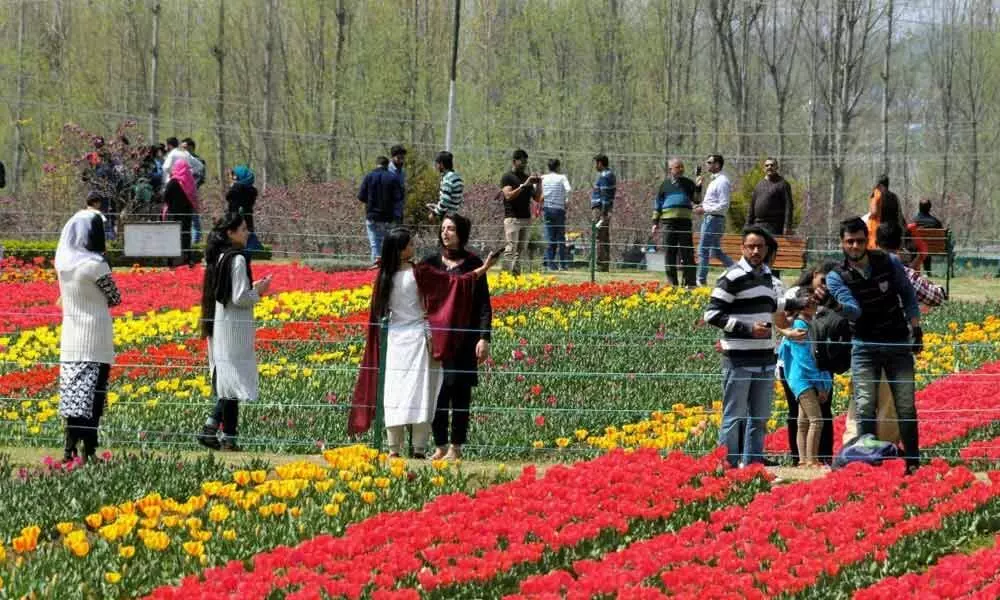Let farmers make profits, then scrap MSP

Let farmers make profits, then scrap MSP
The government has to tread between the twin objectives of doubling farmer’s incomes and dismantling the Minimum Support Price or MSP
The government has to tread between the twin objectives of doubling farmer's incomes and dismantling the Minimum Support Price or MSP. Both objectives are good. However, the objective of doubling farmer's incomes does not seem to be on the track. Reason is that government policies in this direction are misplaced. The government had established an Inter-Ministerial Committee to make plan for securing this objective which submitted its report in 2018. The committee has stressed the need to increase productivity in agriculture.
In other words, more production should be obtained from the same one-acre piece of land. It seems obvious that more production would get more income for the farmer. Instead of earning Rs 2,000 from one quintal of wheat, the farmer would earn Rs 4,000 from two quintals of wheat. However, the committee forgot to note that the prices, more often than not, decline when production increases.
The prices of agricultural produce in the global market have been declining in the last three decades. The population is not increasing rapidly while production continues to increase rapidly due to the use of tube wells, tractors, tissue culture and other modern technologies. This is leading to small increases in demand of the agricultural produce while the supply is increasing rapidly.
The result is a decline in the prices. Therefore, the committee's recommendation to increase productivity is having the opposite result. The farmer is producing higher quantities but is earning less because of the parallel reduction in the prices. A few years ago, the farmers of Palanpur dumped their potato crops on the streets because they could not even recover the cost of harvesting them, let alone recovering the cost of seeds, ploughing and watering.
The second recommendation made by the committee was to secure an increase in the price of agricultural produce. Here there arises a contradiction between the two objectives of the government.
The direct solution for increasing the incomes of the farmers is, not only to maintain the MSP but to increase it. This stands contrary to the government's objective of dismantling the MSP, which too is good. The MSP system has led to high production of specific crops. The government, through the Food Corporation of India, has to purchase the produce, store it, and often sell or export it at low prices later.
There are huge problems of corruption and inefficiency involved here as well. It leads to a financial burden on the government. A circuitous route to securing increase in the incomes of the farmers is adopted in the MSP approach. First, the production is increased, and the soil is over-exploited and over-stressed; then losses are incurred in purchase and storage of the crop; lastly loss is incurred in selling it at a low price. Therefore, the doubling of farmer's incomes by securing increase in the price as recommended by the committee will not and has not worked.
There is a way out yet. The committee had also recommended that the agricultural crops should be diversified. This recommendation can help solve the problem. Farmers of Italy and a small country like Tunisia in Africa are earning good incomes from the cultivation of olives. Farmers of France are earning from the cultivation of grapes, those of Netherlands from Tulip flowers, those of Malaysia from rubber, those of United States from walnuts, those of Pakistan from guava and mangoes, and so on.
A number of such countries have established themselves as suppliers of specific crops. The farmers of Netherlands are paying a salary of Rs 15,000 per day. They are able to do this because their tulip flowers are of specified quality and get high prices in the international market. In our country, farmers of Kerala are earning high incomes from the cultivation of pepper, those of Mandya from silk, those of Coorg from coffee, those of Gulbarga from grapes, those of Bhusaval from bananas, those of Nasik from onions, those of Jodhpur from red chilies, and those of Assam from tea and pineapples. Therefore, the global- and our own experience tells us that farmer's incomes can be doubled if we can produce good quality produce as per international standards. Then MSP would not be required at all. No wonder, there is little opposition to dismantling of MSP from these areas.
The present imbroglio has been caused because the government wants to double the farmer's incomes later and dismantle the MSP upfront. This is like asking the homemaker to cease using the wood stove first and provide LPG gas to her after two years or asking the student to stop going to school today and provide him with a smartphone after two years. The dismantling of MSP before doubling the income would indeed be hugely harmful for the farmers and their protests today are justified.
India has a special advantage in being able to grow high-value crops for the global market. We can grow tulip, gladiolus and rose flowers across the 12 months. These can be grown in the south in the winters, Rajasthan in the monsoons and in the hills in the summers. We can grow olives in the deserts of Rajasthan, grapes of quality suitable for making high-priced wine in Gulbarga, and orchid flowers in the Northeast. These flowers sell for as much as Rs 10,00 for a single stem. The government should invest in research on these hi-value crops.
Varieties of tulips, olives, grapes and other crops need to be developed that can grow in the specific soil and climate of our country. The crop management has to be determined to produce crops as per international standards. We can certainly attain this objective if the laboratories established by the Ministry of Agriculture do their work earnestly without interference. But research does not pay political dividends immediately hence the government puts this on the backburner.
The government must change its strategy. It must introspect why the farmers' incomes have not doubled despite this being promised to be attained in 2018, 2020 and now 2024? It must make heavy investments in research. It may outsource research because termites have taken over our government laboratories. It must establish the infrastructure required to enable farmers to export their crops. A farmer at Paukhal near where I live in Uttarakhand grew gladiolus flowers. He incurred heavy losses because he could not transport them to the market in the plains. The government should first remove these bottlenecks and actually double the farmers' incomes. The MSP system should certainly be dismantled thereafter.
(The writer is formerly Professor of Economics at IIM, Bengaluru)









